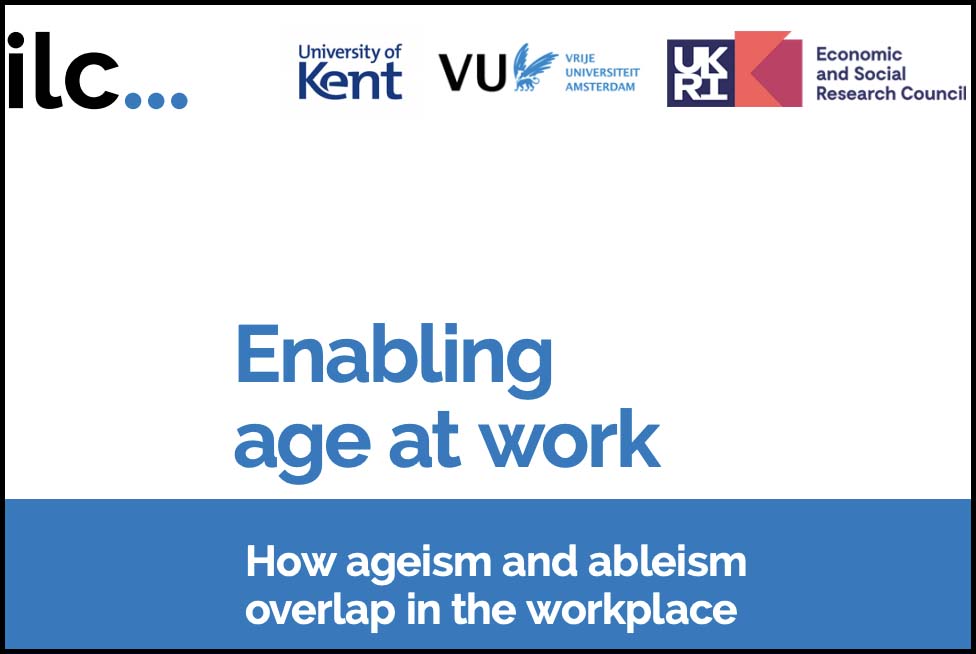A new research report, co-authored by SSPSSR Professor Sarah Vickerstaff for the International Longevity Centre UK, highlights an overlap between ageism and ableism in the workplace.
The report says employers and older workers often see training and professional development as more relevant for younger people. It also found that ageist and ableist attitudes are internalised by older people themselves. This can have a significant impact in workplaces, creating additional barriers to achieving broader policy ambitions to foster equality and encourage longer working lives.
Research for the report was undertaken by Professor Vickerstaff (Professor of Work and Employment at Kent) in collaboration with Dr Brian Breach and Dr Mariska van der Horst from Vrije Universiteit Amsterdam.
The project, funded by the Economic and Social Research Council, sought to explore perceptions of ageism and ableism through a series of interviews with older workers and managers from four organisations. It also included roundtable discussions held with selected stakeholders from occupational health and professional development.
Research revealed how employers and older workers too often see training and professional development as more relevant for younger people. The report says this leads to missed opportunities for enhancing skills and sharing experience. Research also found that, as the risk of developing an impairment increases with age, occupational health support is key – with ongoing support that acknowledges the social model of disability.
The report urges organisations to create inclusive work environments and to educate managers and staff about the social model of disability, including what this means for their workplace, rather than use the individual/medical model. Where a worker develops health issues, occupational health services should act as an advocate for the worker, ensuring that the job is made to fit the person. These efforts should focus on ongoing support to enable the worker to stay in work rather than just get back to work.
In an article for Bizcommunity, Professor Vickerstaff said: ‘The language managers use to talk about older workers and the way those older workers frame their own thoughts about work, extending working lives and retirement are important. Age stereotypes are routinely employed with respect to older workers’ capabilities and potential. Age norms about what is appropriate for different age groups are often used to talk about training and development or extending working lives.”
“In this sense, ageism is normalised in organisations, taken for granted and, to a large extent, unexamined. Ageist language does not seem to have the power to shock in the way that overtly racist or sexist language nowadays might.’
Professor Vickerstaff is a Fellow of the Gerontological Society of America and a Fellow of the Academy of Social Sciences. main research interests are in the changes to the relationship between paid work and the life course, in particular at the beginning and end of working life
The International Longevity Centre UK (ILC) is the UK’s specialist think tank on the impact of longevity on society.

